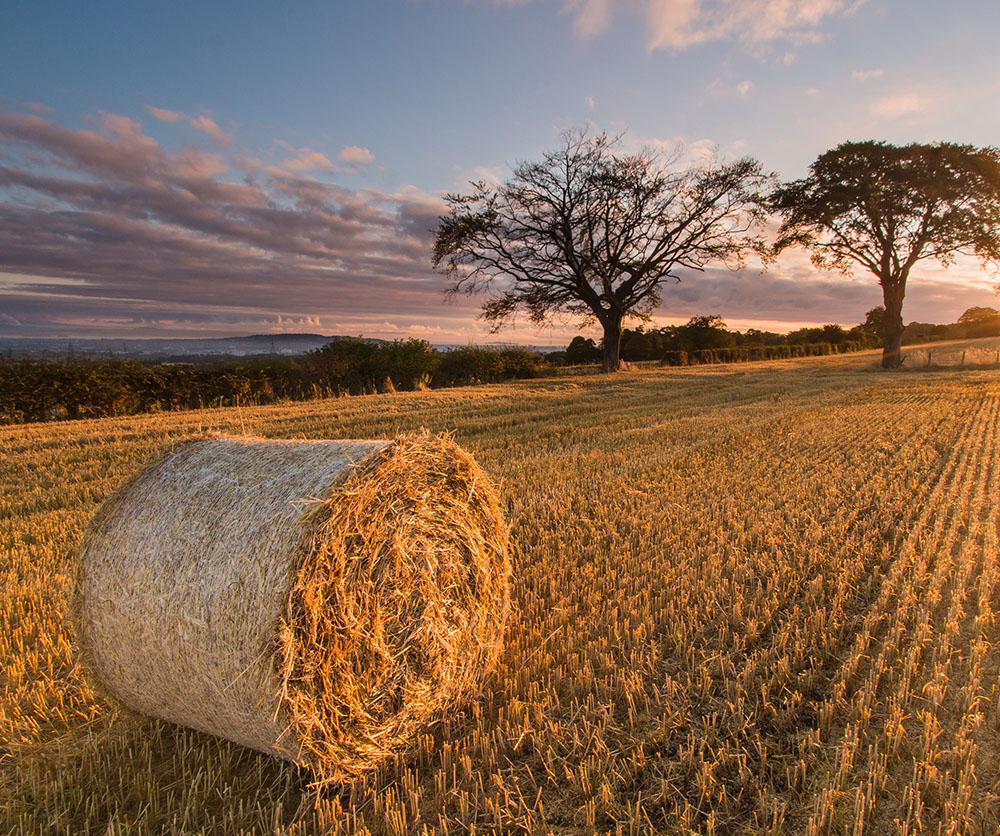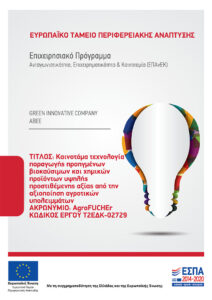Project title:
Innovative technology to produce advanced biofuels and high value-added chemicals from the utilization of agricultural residues
Acronym:
AgroFUCHEr
Project Code:
Τ2ΕΔΚ-02729
Project Coordinator:
GRINCO ABEE

The proposed project, entitled: "Innovative technology for the production of advanced biofuels and high value-added chemicals from the utilization of agricultural residues AgroFUCHEr",", will be implemented by GRINCO AEBE, a company active in the field of biofuels, utilizing the know-how of the Research Body, EKETA/IDEP, subcontractor in the project.
The decline in fossil oil reserves, fluctuating oil prices and the environmental impacts of its use have led to the rapid growth of biofuel industries, , with biodiesel emerging as the fastest growing industry worldwide.
At international level, the only liquid biofuels currently recognized as commercially viable replacements for petrol and diesel are bioethanol and biodiesel (FAME), respectively. . In particular, in Greece, biodiesel is the only biofuel produced by the technology of transesterification of vegetable oils from energy crops.However, the development of the biofuel production sector is limited by the high cost of raw materials, which constitutes more than 88% of the total cost, and the socio-economic impact of land use change for fuel production. Consequently, the shift to new innovative technologies to produce advanced biofuels from residual biomass is a business incentive for the technological development of this industrial sector.
The technical scope of the proposed project concerns the development of an innovative technology to produce advanced biofuels and high value-added chemicals from renewable raw materialsand specifically from residual agricultural biomass, through modern thermochemical processes, aiming to enhance the competitiveness and sustainability of GRINCO AEBE and the reduction of emissions and the enhancement of sustainability in land and air transport.
Specifically, the technically available potential of residual biomass in Greece amounts to ~4.9MT dry matter/year, corresponding to an energy potential of ~99 PJ/year (~27.7 TWh), based on ELSTAT data, 2009 (KAPE, 2013)4. In particular, in the prefecture of Larissa, the headquarters of GRINCO ΑΕΒΕ, the potential ranges between 350-450 thousand tonnes of dry matter/year.
The prefecture has the highest position, in terms of availability of residual biomass, among the prefectures of Greece, while the company itself also currently has about 10,000 contracted acres of sunflower and rapeseed cultivation in the prefecture, the residues of which remain unused in the fields.
The proposed technological scheme, therefore, includes the development and pilot demonstration of the technology for the production of advanced biofuels (alternative diesel, petrol and kerosene) from lignocellulosic biomass, through the combination of the thermochemical technologies of hydrothermal liquefaction and catalytic hydrotreatment, and the technological and environmental evaluation of the technology.
The crude glycerol from the biodiesel plant will be used as a co-feedstock, renewable solvent to improve the yield and quality of bio-oil from the hydrothermal liquefaction process.




